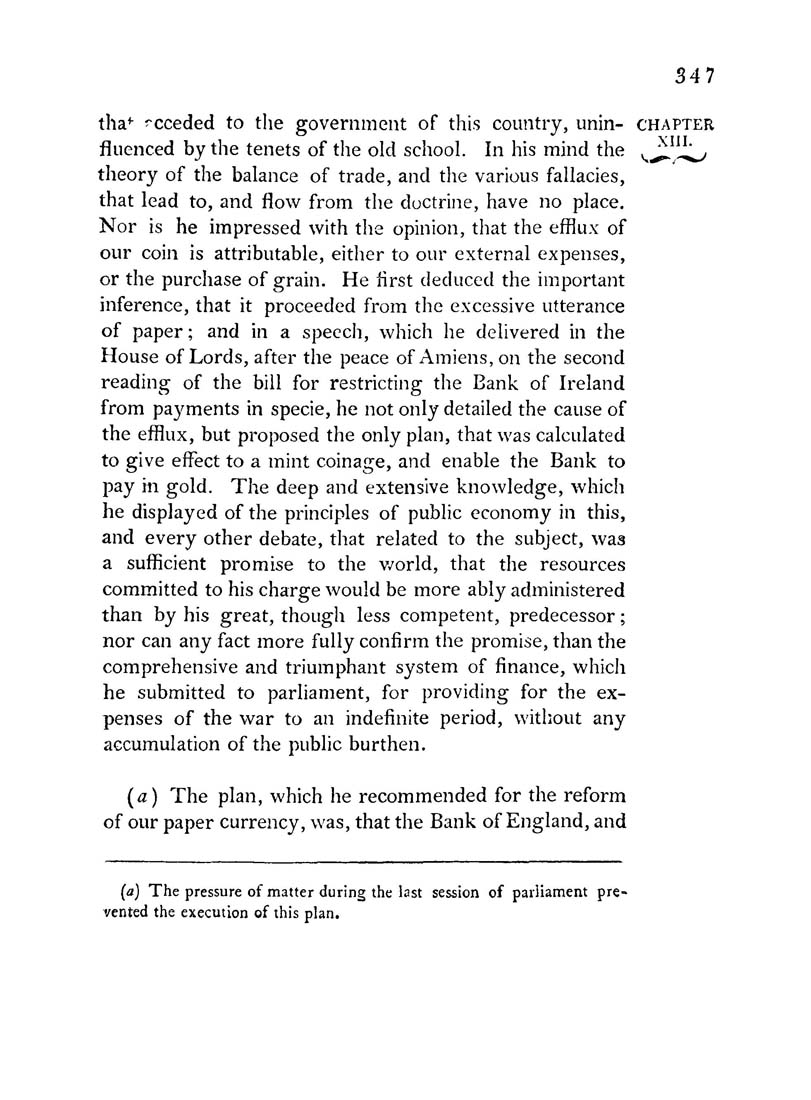347
tha*- acceded to the government of this country, unin- chapter
fluenced by the tenets of the old school. In his mind the v,^^,!^
theory of the balance of trade, and the various fallacies,
that lead to, and flow from the doctrine, have no place.
Nor is he impressed with the opinion, that the efflux of
our coin is attributable, either to our external expenses,
or the purchase of grain. He first deduced the important
inference, that it proceeded from the excessive utterance
of paper; and in a speech, which he delivered in the
House of Lords, after the peace of Amiens, on the second
reading of the bill for restricting the Bank of Ireland
from payments in specie, he not only detailed the cause of
the efflux, but proposed the only plan, that was calculated
to give effect to a mint coinage, and enable the Bank to
pay in gold. The deep and extensive knowledge, which
he displayed of the principles of public economy in this,
and every other debate, that related to the subject, was
a sufficient promise to the v/orld, that the resources
committed to his charge would be more ably administered
than by his great, though less competent, predecessor;
nor can any fact more fully confirm the promise, than the
comprehensive and triumphant system of finance, which
he submitted to parliament, for providing for the ex¬
penses of the war to an indefinite period, without any
accumulation of the public burthen.
(a) The plan, which he recommended for the reform
of our paper currency, w^as, that the Bank of England, and
(a) The pressure of matter during the last session of parliament pre=
vented the execution of this plan.
|








